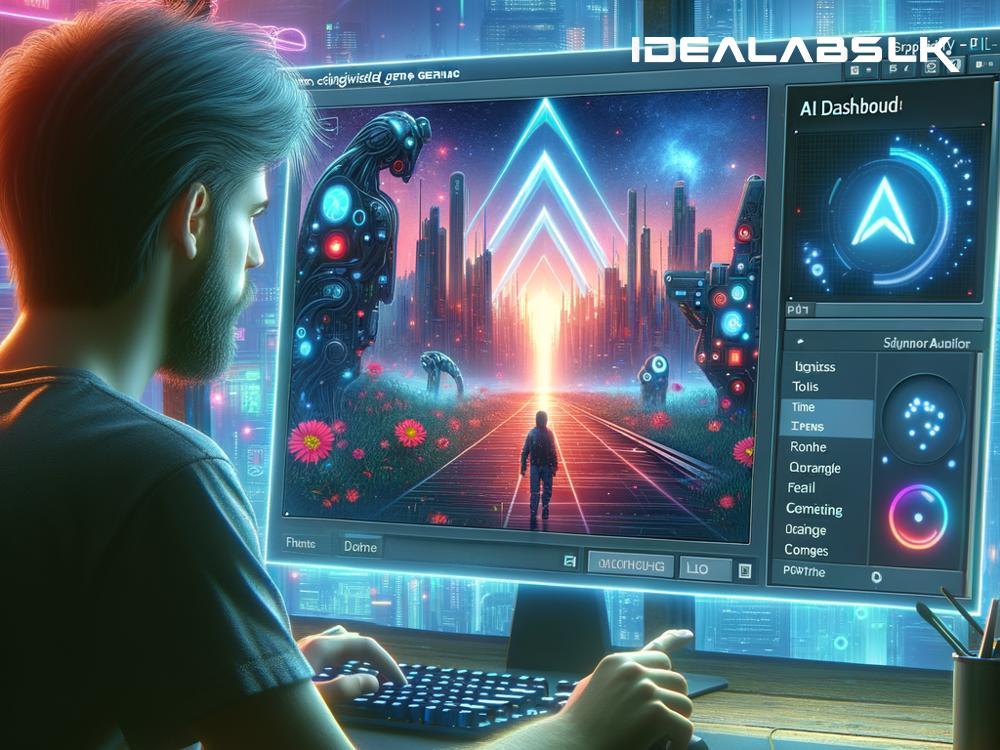How AI in Game Engines Will Transform Real-Time Game Creation by 2025
Imagine a world where creating a video game is as simple as describing what you want to a computer, and then, it brings your vision to life. Sounds like something out of a sci-fi movie, right? Well, we're headed in that direction faster than you might think, thanks to advancements in Artificial Intelligence (AI) within game engines. By 2025, real-time game creation could see a transformation that will make the current processes look ancient. But how? Let's dive into this fascinating journey of AI and game development.
The Game Changer: AI in Game Engines
A game engine is like the backbone of any video game you play. It's software that provides game creators with the tools needed to build games, from the physics to the graphics to the sound. Traditionally, developing a game requires a blend of technical programming skills and creative genius. However, integrating AI into game engines is set to revolutionize this process, making it more intuitive, faster, and opening up game development to a broader spectrum of creators.
Intuitive and Collaborative Design Tools
One of the biggest advancements we will see by 2025 is the rise of intuitive AI-assisted design tools. These tools will understand plain English instructions, or even sketches and concepts, to generate or modify game assets in real time. Imagine telling your computer, “Create a spooky forest with a hidden cave,” and it instantly generates a beautiful, detailed environment according to your description. This reduces the need for intricate programming skills for designers, allowing them to focus on creativity and storytelling.
Streamlined Game Testing and Adaptation
Testing games can be a tedious process. It involves a lot of repetition, tweaking, and retesting to ensure everything runs smoothly. AI will simplify this by not only automating the testing but also learning from each test to suggest or even implement improvements. This means a game can evolve and adapt faster to become the best version of itself. By 2025, real-time adjustments and sandbox testing environments powered by AI could become standard, slashing development times and enabling creators to iterate fast.
Dynamic and Responsive Game Worlds
Currently, most game environments are static, meaning they don't change unless manually altered by developers. As AI becomes more integrated into game engines, we’re going to see game worlds that are dynamic and responsive. For instance, an AI could create an ecosystem where plants grow, weather changes, and NPC (non-playable character) behaviors evolve based on the player's actions, all in real time. This would make for a more immersive and unpredictable gaming experience, akin to living within a living, breathing world.
Enhanced Accessibility and Inclusivity
AI in game engines is not just about making life easier for developers; it's also about making game creation accessible to those without a background in coding. By 2025, we could see platforms that allow practically anyone with a story to tell or an idea to explore to create complex games. This democratization of game development will foster an environment of diversity and inclusivity, bringing fresh perspectives and stories to the forefront of gaming culture.
The Future is Closer Than You Think
While all this might sound futuristic, the building blocks are already being put in place. Companies and research teams worldwide are continually pushing the boundaries of what AI can achieve within game development. By 2025, these technologies will be more mature, integrated, and user-friendly, marking a new era of game development.
In conclusion, the integration of AI in game engines is poised to redefine the landscape of game development by making it more instantaneous, intuitive, and inclusive. The year 2025 holds the promise of a creative revolution where barriers to game creation are torn down, paving the way for more people to bring their unique visions to life. As we look forward to these advancements, one thing is certain: the future of gaming is bright, and it's smarter than ever.

